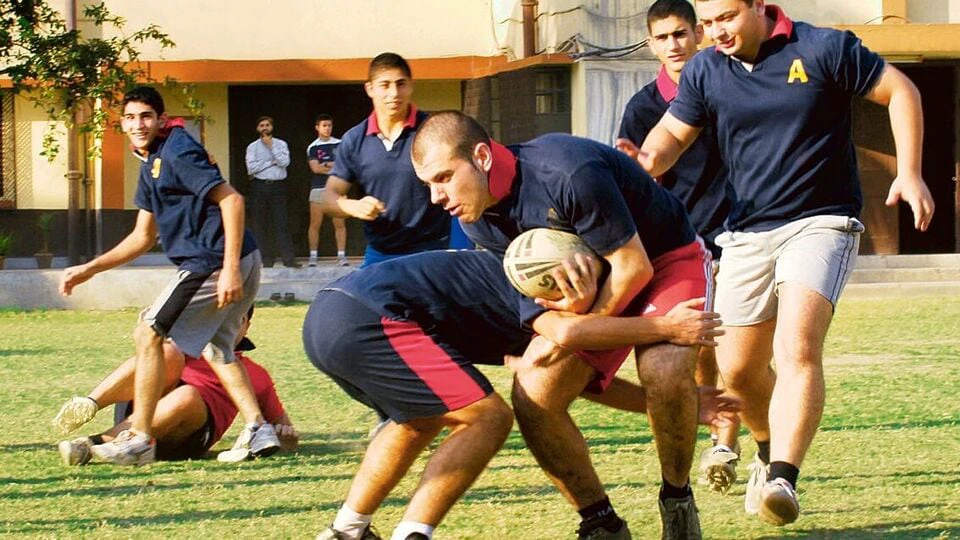MUMBAI: GMR Sports, best known for its Indian Premier League (IPL) franchise cricket team Delhi Capitals, is making an ambitious foray into rugby with the launch of the Rugby Premier League (RPL).
First announced in December 2024, the league’s inaugural season kicks off later this month, with six teams and backing from some of India’s prominent corporate houses.
The league will run from 15 June to 29 June, with two matches scheduled on weekdays and three on weekends.
RPL is being launched in partnership with Rugby India, with GMR serving as the commercial and operational partner for the league. The company currently owns cricket franchises across the IPL (50% in Delhi Capitals), the International League T20 (Dubai Capitals), Major League Cricket (Seattle Orcas with a clutch of investors, including Satya Nadella, Soma Somasegar and others), and in the Legends League Cricket (India Capitals).
It also owns franchises across the Pro Kabaddi League (UP Yoddhas) and the Ultimate Kho Kho (Telugu Yoddhas). But now, GMR Sports is looking to also own and operate sports intellectual properties (IPs).
“We’ve built strong internal capabilities managing teams, but the real value lies in creating leagues and IPs. Rugby ticked all the boxes-it’s an Olympic sport, it has global corporate interest, and World Rugby has committed a dedicated window so the best players will be available,” Satyam Trivedi, CEO, GMR Sports, told Mint in an exclusive interaction.
Growing popularity
Rugby may barely register in mainstream Indian consciousness, but the federation claims the sport is played across more than 250 districts. “It’s still under the radar, but there’s a strong grassroots base and a very structured federation. We’ve had a great experience working with Rugby India and its president, Rahul Bose,” Trivedi added.
Rugby, originated in England in the 19th century, is a high-intensity, full-contact sport where two teams compete to carry, pass, and ground an oval ball in the opponent’s territory to score points. RPL brings this sport to a broader Indian audience through a fast-paced, Olympic-aligned format.
The league will follow the Rugby Sevens format, but with a tweak: four quarters of four minutes each, designed to make the matches faster and more TV-friendly. This mirrors the shift in sports consumption, where younger audiences increasingly prefer highlights, reels, and short-form formats over full-length broadcasts.
GMR sees it as a short-format product tailor-made for younger audiences used to consuming sports in bite-sized bursts. Each match will last 22 minutes.
The six franchise teams and their respective owners are: Mumbai Dreamers (Dream Sports); Hyderabad Heroes (KLO Sports); Kalinga Black Tigers (Hunch Ventures); Chennai Bulls (AvidSys); Delhi Redz (RMZ); and Bengaluru Bravehearts (a consortium of Manipal Group’s Ranjan Pai, Soham Energy’s Sanjith Sethi, and InCred’s Bhupinder Singh).
Player selection has been conducted via a central draft, and each squad consists of 13 players-five marquee internationals, three ‘bridge’ players from mid-tier rugby nations, and five Indians. A unique playing format ensures two marquee, two bridge, and two Indian players take the field at all times, with the seventh player decided by the coach.
The league will be broadcast on Star Sports and streamed on JioHotstar, with Dream11 roped in as fantasy partner from the first season itself. “Youth today want to engage across multiple touchpoints-fantasy, merchandise, stats, social media. So we’ve designed this to be a full-stack, digital-first sports product,” said Trivedi.
Attracting viewers
Despite the optimism, rugby’s lack of visibility in India presents a steep challenge. GMR acknowledges that and plans to run simple, explanatory marketing to introduce the game to new audiences. “We don’t expect everyone to understand the rules right away. The goal is to simplify and attract viewers-then build from there,” he said.
Financials remain undisclosed due to the non-disclosure agreements (NDAs) with team owners, but the business model mirrors other Indian leagues: central revenues, franchise-level sponsorships, and broadcast tie-ups. GMR doesn’t expect a quick break-even.
“It’s at least a three to four-year journey, not just for revenue but for awareness and fandom to build,” Trivedi said.
To avoid the ’15-day season’ pitfall of many Indian leagues, GMR plans to keep engagement alive year-round via college, school and franchise-led activations. “We’re not treating this as a seasonal event-it’s a full-year commitment, including grassroots development,” he added.
Beyond commercial returns, GMR is also positioning RPL as a contribution to India’s Olympic ambitions. “If we can help Indian rugby players reach international clubs or the Olympics, that’s a win too. This isn’t just a business-we see it as part of nation-building in sport,” said Trivedi.
The league enters a crowded market already grappling with audience fatigue and underperforming properties, but GMR believes RPL’s international character, short format and year-round engagement give it a fighting chance.
If successful, the Rugby Premier League could set a new precedent for how niche sports are built in India. If not, it will be another reminder of how hard it is to crack the post-cricket code.
